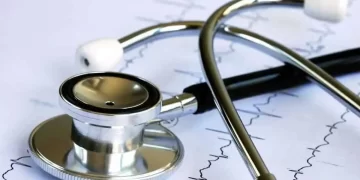Ghana has recorded a surge in its number of confirmed cases of the coronavirus and currently stands at 4, 700.
The increase has been realized in the wake of strict measures such as the closure of schools, bars, some markets, enhanced tracing, testing, and treatment.
President Akufo-Addo in a televised broadcast in an update of the management of the pandemic on Sunday night attributed the increase to a backlog of tests that had been completed and confirmed as positive and the outbreak of the virus among staff of a company in Tema.
Covid19: Central Region Yet to Reach its Peak of Corona Virus
“It is important to stress that five hundred and thirty-three (533) out of the nine hundred and twenty-one (921) new cases recorded between last Wednesday and Thursday are factory workers from a fish processing factory located in Tema. All five hundred and thirty-three (533) persons were infected by one (1) person. Again, let me reiterate that these new nine hundred and twenty-one (921) cases were from backlogs dating as far back as 26th April, and not necessarily over a twenty-four (24) hour window.”
He also noted that a total number of 160,501 tests had so far been conducted nationwide.
He added that though there has been an increase in cases, there also has been a significant increase in the number of recoveries. Ghana’s recoveries currently stand at 494, indicating 116 more recoveries being recorded.
“With our total number of infections standing at 4,700 with 494 recoveries, 5 persons being critically ill and 4,179 responding to treatment, 22 persons virtually with underlying conditions like diabetes, hypertension, high blood pressure and many others have unhappily died” the President explained.
President Akufo-Addo reiterated the need for Ghanaians to stick to the protocols of handwashing under running water with soap for at least 20 seconds, wearing of nose mask, enhanced hygiene and social distancing among others.
With Ghana’s strategy of enhanced testing, more contact tracing and treatment are being carried out with more than 4,000 patients receiving care and responding to treatment.
BY: ONESIPHORUS OBUOBI




























